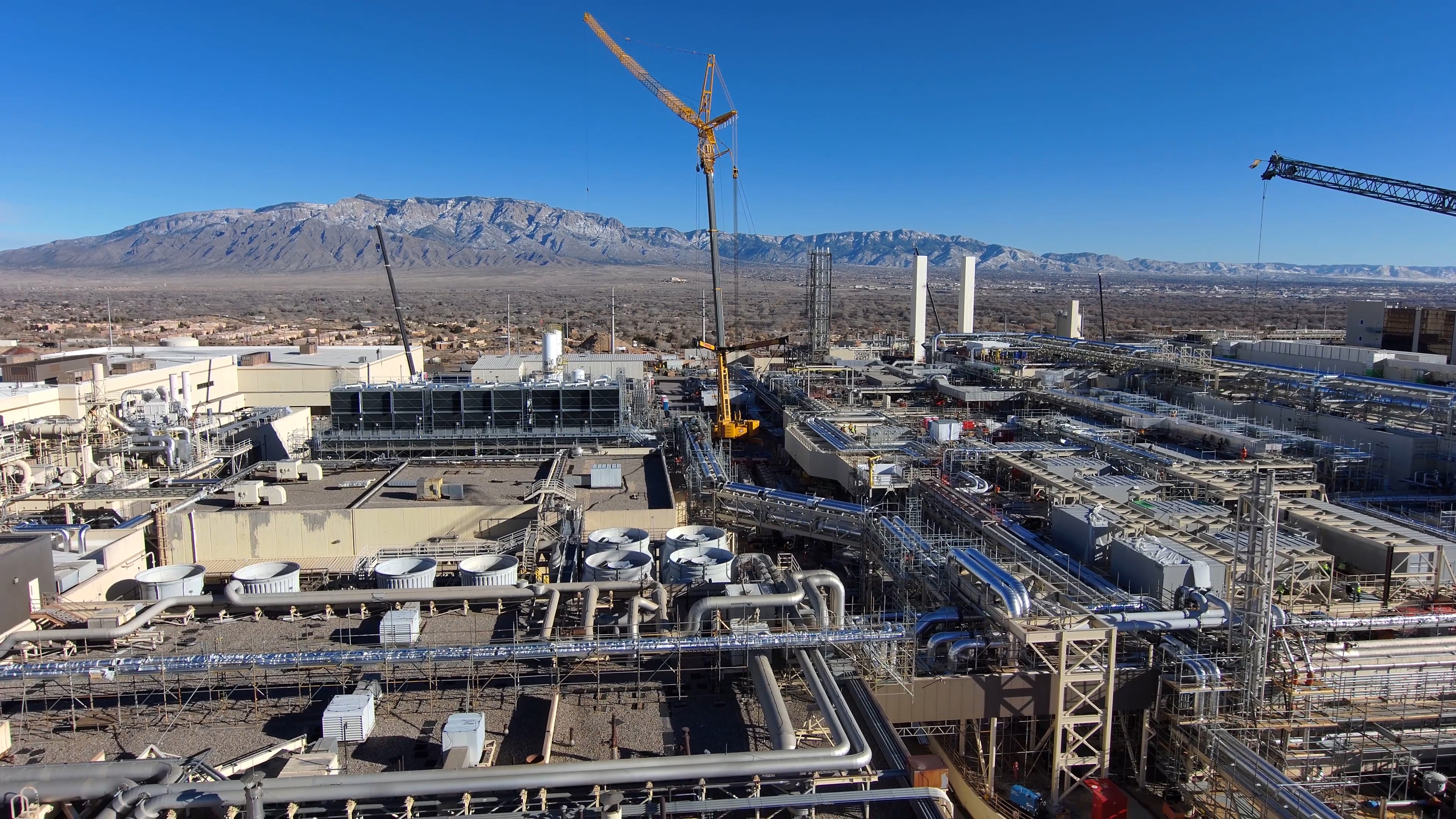U.S. chip fab construction is among the slowest in the world — a complex web of regulations is to blame according to study
It's kind of a mess.

Get Tom's Hardware's best news and in-depth reviews, straight to your inbox.
You are now subscribed
Your newsletter sign-up was successful
A report from the Center for Security and Emerging Technology (CSET) concludes that U.S. fab construction is among the slowest in the entire world, and it's because of messy and complex regulatory policies (via Dylan Patel). The report concludes that the CHIPS Act isn't enough to improve fab construction regarding cost and time, and suggests reform at all levels of government is necessary to get the U.S. on par with China, Europe, and Taiwan.
The CSET study looked at fab construction between 1990 and 2020, and concluded that for the roughly 635 fabs built in that timeframe, the average time between the start of construction and production was 682 days. Three countries beat that benchmark: Taiwan at 654 days on average, Korea at 620, and Japan at a staggeringly fast 584 days. Meanwhile, Europe and the Middle East were about on par at 690 days, as was China at 701 days.
However, the U.S. clocked in at 736 days, well above the worldwide average and second only to Southeast Asia at 781. Things look even worse when you look at specific decades. In the 90s and 2000s, the U.S. was pretty fast and saw average construction times of about 675 days. In the 10s, that number dramatically increased to 918 days. Meanwhile, China and Taiwan were going at a much faster pace that decade, with an average completion time of 675 and 642 days, respectively.
Naturally, the amount of fabs the U.S. is making at all has also declined. In the 90s, 55 fabs were constructed in the U.S., dropping to 43 in the 2000s and then to 22 in the 10s. At the same time, China is massively accelerating its fab construction, from 14 in the 90s to 75 in the 2000s to 95 in the 10s. Although China is still playing catch-up in semiconductor technology, it certainly is a juggernaut in fab construction, which will at least benefit production capacity.
The findings aren't surprising, as many high-profile fabs have missed their original targets for production. TSMC's Fab 21 in Arizona recently added a one-year delay, Intel's Ohio fabs are apparently slipping from 2025 to late 2026, and Samsung delayed a Texas-based foundry to 2025 due to not receiving its CHIPS Act funds.
The report identifies seven critical requirements for building fabs: land, low seismic activity, a stable water supply, reliable electricity, talent, infrastructure, and closeness to suppliers. The U.S. indeed excels in many of these areas; the country has tons of land that isn't impacted by earthquakes, water and electricity usually aren't a problem (though the Texas winter storm of 2021 is a blemish on that record), and there's plenty of silicon talent. By contrast, Taiwan is prone to earthquakes, and TSMC alone takes up much of the island's water and electricity.
The vital issue for fab construction in the U.S. is regulation, according to the report, which notes it is "beneficial to the general public but present tradeoffs for semiconductor manufacturers" and describes it as "arcane." The study doesn't recommend scrapping regulation entirely, but instead suggests removing redundant rules and carving out exceptions for the semiconductor industry.
Get Tom's Hardware's best news and in-depth reviews, straight to your inbox.
Regulation in the U.S. can be incredibly complicated thanks to its federal structure, which has created a hierarchy of one national government, 50 state governments, and countless local governments. Fab construction needs to comply with three rulebooks, which is significantly more complicated than the situation in countries like Taiwan. Solving these regulatory issues is likely to be challenging at best.
America's environmental protection policies have also hindered fab construction. Three government bodies at the federal level alone have their own policies, with the Environmental Protection Agency (EPA) being the largest, and then state- or local-level agencies like the Texas Commission on Environmental Quality. The study details instances where the review process from these organizations caused significant delays and recommends the creation of a fast track to expedite construction projects for the semiconductor industry.
Environmental policies are also impactful on semiconductor materials, many of which are "derived from, or contribute to, environmentally harmful practices," according to the study. In this case, CSET says the U.S. government should invest in developing alternative materials and stockpile rare materials that may be difficult to obtain on a stressed supply chain.
Even if the policy at the national level is completely consistent, unified, and ideal for fab construction, the same feat will need to be achieved with state and local governments. It's unclear how much of an impact this will have on currently delayed fabs from TSMC, Intel, and Samsung, which are due to be done soon, even after several delays.

Matthew Connatser is a freelancing writer for Tom's Hardware US. He writes articles about CPUs, GPUs, SSDs, and computers in general.
-
Darkoverlordofdata Reply
Actually, the article implies that the reason is that the US is just too big. If we were smaller, like Tawain, there would be less regulation. Dumb. Just like this article.Notton said:Over and Under regulated at the same time?
Classic USA there. -
thestryker The report seemingly ignored the delays caused by companies slow rolling and fighting with labor. I don't really think advocating for removing regulation is a particularly smart way to handle things. Seems like the exemptions Intel got for expansion are the right way to go about it. Also perhaps funding the EPA sufficiently so they can actually process things within the timeframe they're supposed to on a reliable basis.Reply -
tomspown I think the biggest problem is corruption and when the payoff settles then all permissions are given to build freely, there should be an organisation that follows the money and arrests those criminals.Reply